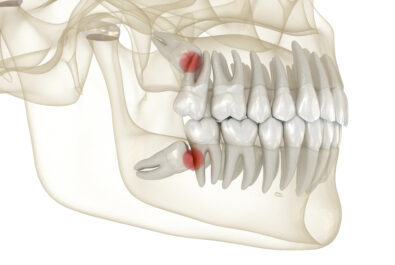Literally, pH stands for the potential of Hydrogen, and it measures the hydrogen-ion concentration of a substance. Empirically, the pH scale measures and classifies a substance’s acidity or baseness (opposite of acidity). A healthy mouth usually hovers around a pH of about 7.1, which is slightly above the neutral pH of seven. However, acids introduced through your diet are constantly lowering this number, endangering your teeth and dental health.
Acids in Your Mouth?
The word acid has numerous negative connotations, typically conjuring up images of a dangerous, smoking liquid effortlessly eating through some solid substance. The acids in your mouth, which are organic, are quite different from the acids found in laboratories, like hydrochloric acid, but they can still erode what they contact, such as the outer layer of your teeth. Some foods and beverages are naturally acidic, like apples, oranges, and other citrus fruits. Other substances contain sugars and carbs that the bacteria in your mouth consume and convert into lactic acid. The presence of acid naturally lowers the pH of your mouth (which indicates higher acidity). When your mouth drops below a level of 5.5, your tooth enamel begins to dissolve under the attack. If allowed to progress unchecked, acid damage will leave your enamel too weak to protect your teeth from bacteria, which can slip past enamel and infect the inner tissues of your teeth
Keep Your Dental pH Under Control
Cutting acidic foods out of your diet may be possible, if extremely difficult, but may also deprive you of essential minerals and nutrients. Unfortunately, ceasing to feed the bacteria in your mouth at all would likely entail not feeding yourself, either. There is hope, though. Simple though it may seem, brushing and flossing your teeth are among your best defenses against the invasion of organic acid. Bacteria are more effective (because they produce more acid) in larger numbers. Left alone, the bacteria create plaque, which hardens into tartar, increasing your chances of developing a cavity. If you must eat something acidic or sugary, do so as part of a large meal, so the other components of your feast can help balance out the acidic intrusion, and rinse your mouth with water when you’re done eating.
ABOUT YOUR CERRITOS ORAL SURGEON:
Shawn Hofkes, DDS, is highly qualified to address complex issues, including the diagnosis and treatment of destructive gum disease. To schedule your appointment or consultation with Dr. Hofkes, contact us today by calling (310) 663-6683. We proudly serve patients of all ages from Cerritos, Lakewood, Long Beach, Buena Park, and all surrounding communities.














